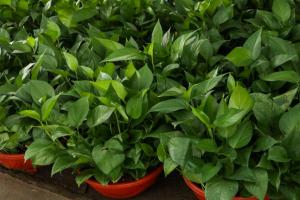Why Would Slugs be Going to My Potted Plants?
Slugs are slimy creatures that are often unwelcome sight in the garden. They can cause significant damage to vegetation, especially potted plants. While there are a lot of reasons why slugs may be attracted to your plants, some of the most common causes are discussed below.
Potting Mix
One of the main reasons why slugs may be attracted to your potted plants is the potting mix. Slugs are known to be fond of moist environments, and this is precisely what a potting mix provides. If your potting mix holds a lot of moisture, you may be providing the perfect habitat for slugs to thrive. As a result, they may be attracted to your plants to seek out this environment.
Over-watering
Over-watering your potted plants is another way of creating a moisture-rich environment for slugs to thrive. Slugs are attracted to areas that are moist, and if you consistently over-water your plants, you may be making your pots the perfect environment for them. Therefore, reducing the amount of water you provide your plants can curb the attraction of slugs to your potted plants.
Types of Plants
Some plants attract slugs more readily than others. For example, hostas and cabbage are tender and juicy, making them attractive to slugs. If you have these types of plants in your garden, there’s a good chance that you’ll have them attracted to your pots as well. However, if you’re looking for less slug-prone plants, consider planting pachysandra or geraniums instead.
Location
The location of your potted plants can also attract slugs. If your pots are close to areas that are damp, such as a pond or lawn, you can expect slugs to be attracted to the area. Also, if your pots are in shady areas, slugs are likely to be more attracted to them. To reduce the attraction of slugs to your potted plants, consider creating a brighter and more open location to place them.
Solutions
If you’re looking for ways to prevent slugs from attacking your potted plants, there are several solutions you can try. One of the most effective ways is to reduce the amount of moisture in your potting mix. This can be done by using a grittier mix or adding coarse sand to the potting soil. Additionally, you can repel slugs by surrounding your plants with copper strip or using other repellents. Lastly, you may consider creating a physical barrier, such as adding salt or eggs shells around your pots to prevent slugs from accessing your plants.
Conclusion
Slugs can cause significant damage to your potted plants, leaving holes and eating away at foliage. However, knowing the main reasons why they may be attracted to your pots can help you take steps to prevent them from becoming an issue in the first place. By reducing moisture, choosing less slug-prone plants, selecting ideal locations for your pots, and using repellents or barriers, you can keep these pesky slugs away and keep your plants thriving.

 how many times do yo...
how many times do yo... how many planted tre...
how many planted tre... how many pine trees ...
how many pine trees ... how many pecan trees...
how many pecan trees... how many plants comp...
how many plants comp... how many plants can ...
how many plants can ... how many plants and ...
how many plants and ... how many pepper plan...
how many pepper plan...































